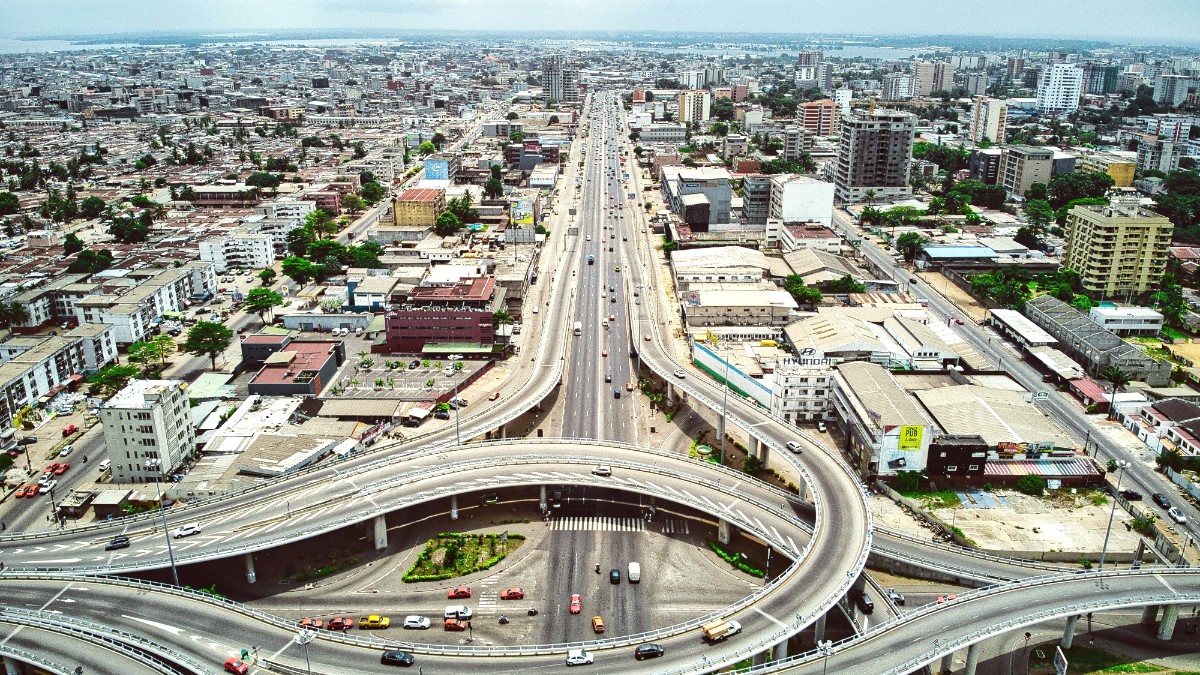
Cote Divoire
Félix Houphouët-Boigny International Airport (ABJ), also known as Port Bouët Airport, is the country's main international airport, south of the city center.
ABJ has one main terminal that handles both international and domestic flights. The airport offers ATMs, currency exchange, duty-free shops, and dining. Car rental desks are present. VIP lounges are here. Wi-Fi can be inconsistent. Shopping options after security are limited, mainly duty-free.
Direct flights are from Paris (CDG) with Air France, Brussels (BRU) with Brussels Airlines, and Istanbul (IST) with Turkish Airlines.
No direct flights connect Abidjan to North America. Travelers from the United States or Canada typically connect through European hubs or major African hubs.
Direct flights are from Dubai (DXB) with Emirates (some flights may have a stop) and Doha (DOH) with Qatar Airways.
Departure taxes for international flights from Félix Houphouët-Boigny International Airport (ABJ) are typically included in the price of your airline ticket. Confirm this with your airline when booking or checking in.
Arrive at ABJ at least 2-3 hours before your international flight's scheduled departure time. This allows sufficient time for check-in, baggage drop, security checks, and immigration. During peak travel periods or holidays, consider arriving even earlier.
The departure area at ABJ provides check-in counters, security screening, and immigration processing. After security, you find limited dining options and duty-free shops, for last-minute souvenir purchases. VIP lounges are here for eligible passengers.
While some routes are common, others need careful security assessments.
Train services can be irregular, slow, and sometimes unreliable. It is advisable to check current status and schedules locally. This is generally not a recommended mode for tourists.
Rental cars are relatively expensive in Côte d'Ivoire. Expect daily rates between 35,000-75,000 XOF.
Road conditions vary. Paved main roads are decent, but secondary roads can be challenging. Traffic congestion in Abidjan is significant, especially during peak hours. Driving habits can be aggressive. Remain cautious and aware.
Arrive at ABJ at least 2-3 hours before your international flight's scheduled departure time. This allows sufficient time for check-in, baggage drop, security checks, and immigration. During peak travel periods or holidays, consider arriving even earlier.
The departure area at ABJ delivers check-in counters, security screening, and immigration processing.
Traffic in Abidjan can be unpredictable, so allow extra travel time to the airport.
Double-check your flight status before heading to the airport.
Arrive at ABJ at least 2-3 hours before your international flight's scheduled departure time.
Abidjan is a major port, but sea and river arrivals for tourism are less common than air or land travel.
If you arrive by cruise ship, standard passport and visa procedures apply. These are usually managed either onboard the ship or at a dedicated terminal within the port.
Taxis are readily available at Félix Houphouët-Boigny International Airport (ABJ).
At bus stations, negotiate fares carefully as drivers may quote inflated prices, especially to foreigners.
Yango is often a good option for airport/station transfers.
Double-check your flight status before heading to the airport. Traffic in Abidjan can be unpredictable, so allow extra travel time to the airport. Arrive at ABJ at least 2-3 hours before your international flight's scheduled departure time.